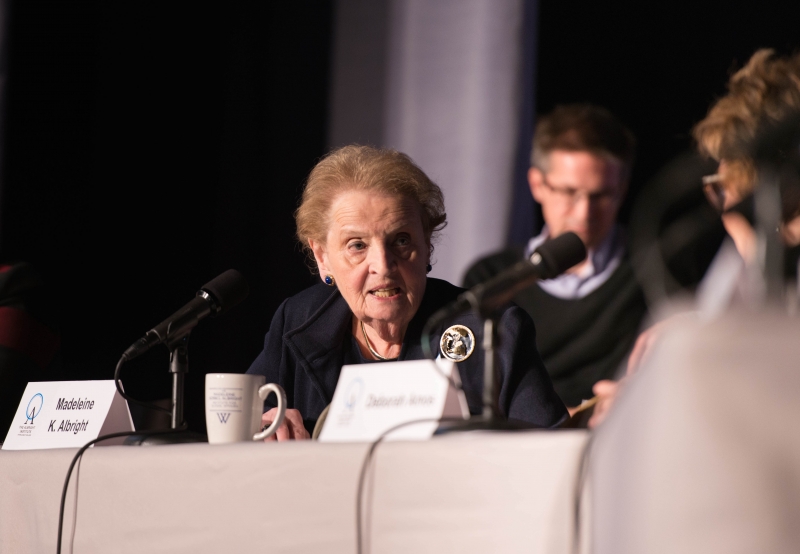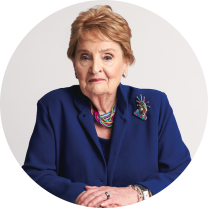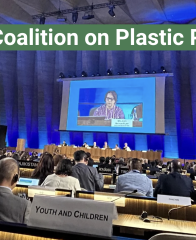 / From Exodus to Action
Subscribe
/ From Exodus to Action
Subscribe

The theme of the Albright Institute’s upcoming public dialogue is From Exodus to Action: Claiming our Common Humanity in the Refugee Crisis. In keeping with that theme, we are making it our goal to not only call attention to the scope of the current challenge, but also to press for a paradigm shift in how the international community responds to the needs of refugees.
We are also making a special point of humanizing a crisis that has begun to feel too abstract and distant. One of the ways in which we are doing this is by bringing together journalists, academics, and practitioners to share their own reflections on a crisis they have witnessed first-hand.
All of the participants in this dialogue have their own perspective, shaped by their personal experiences. For example, as a child I was forced to flee my native Czechoslovakia twice—first to England during World War II, and then to America after the communist coup.
My family claimed refugee status soon after arriving in the United States, and although we were not a hardship case, we have always been grateful for the country’s extraordinary generosity and its welcome. My father used to cite a contrast between the United States and Europe in its approach to refugees. He said that, in Europe, people would say to him, “We are sorry for your troubles and hope that you have everything you need; by the way, when will you be leaving to go back home?” But in America, people said: “We are sorry for your troubles and hope that you have everything you need; by the way, when will you become a citizen?”
At its best, America’s embrace of refugees and immigrants has been as wide as our continent is broad. But today, that tradition is under threat from a president who has been determined to shut the door on refugees, and who issued a blanket ban on refugee and immigrants from seven Muslim-majority nations during his first week in office.
Although its implementation was halted by the courts, the executive order produced incredible chaos and hurt our country's international standing. By turning away those fleeing violence and persecution, including people who took great risks by working on behalf of the U.S. military, the order was a stark departure from core American values. It would have effectively created a religious preference in our immigration system and was deeply biased against Muslims—undermining the principles of religious freedom upon which our country was founded. As a refugee who rose to serve in one of the highest offices in the land, I considered it a repudiation of everything that America represents.
The Trump administration now appears to be on the verge of issuing a revised executive order with the same goals as the first. If that is the case, then national security experts and advocates from the refugee community will need to summon all of our energy to oppose this policy.
But even as we fight to change the approach of this administration, we cannot lose sight of the global nature of this crisis or of the humanity of those affected by it. We also cannot fall into despair. We are not powerless to help those in most desperate need. There is much for us to do, and my hope is that this public dialogue will help summon us to act on behalf of the values and principles we must always hold dear.
Photo Credit: Albright Institute, "Madeleine K. Albright," 24 February 2017.





